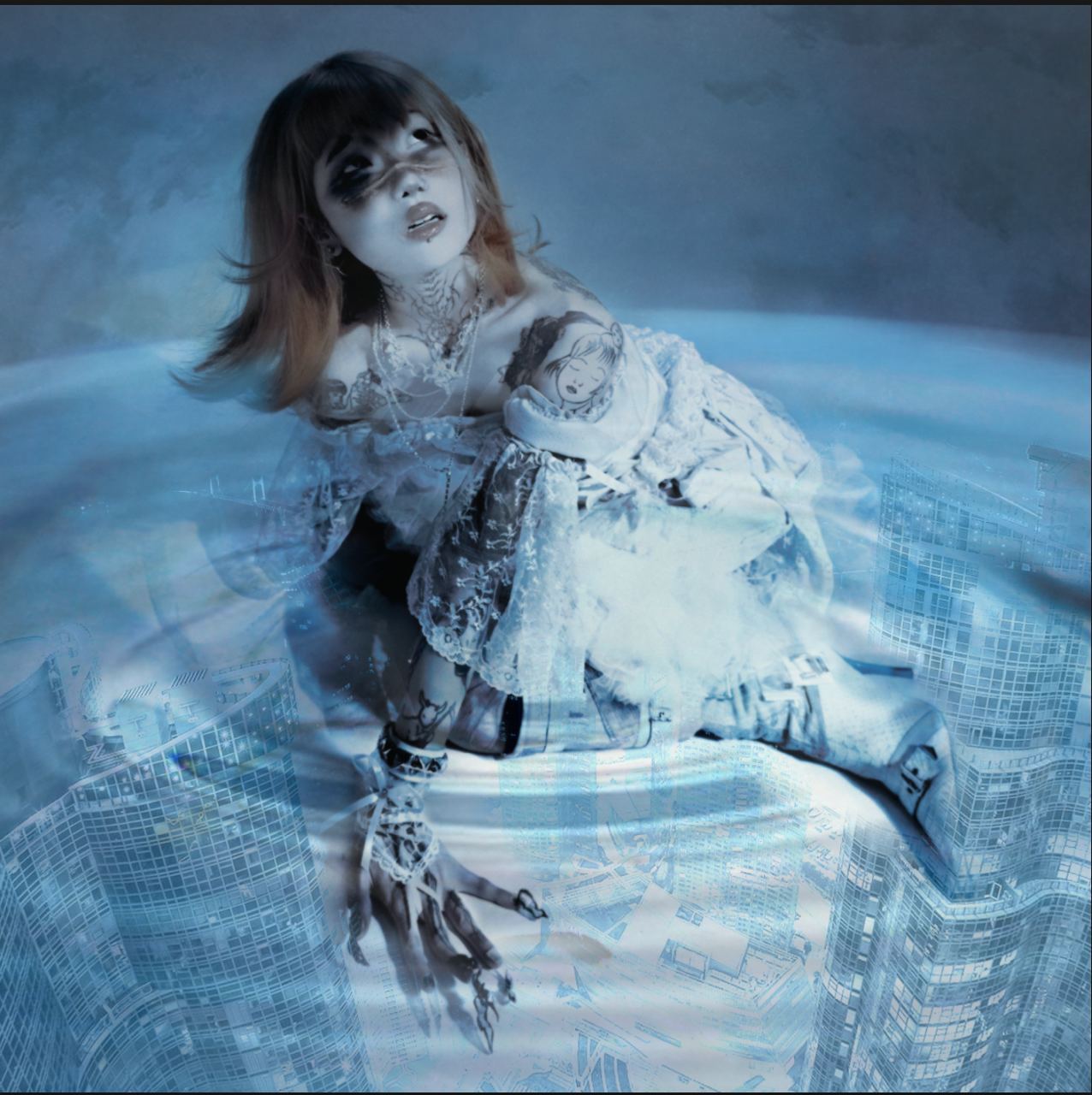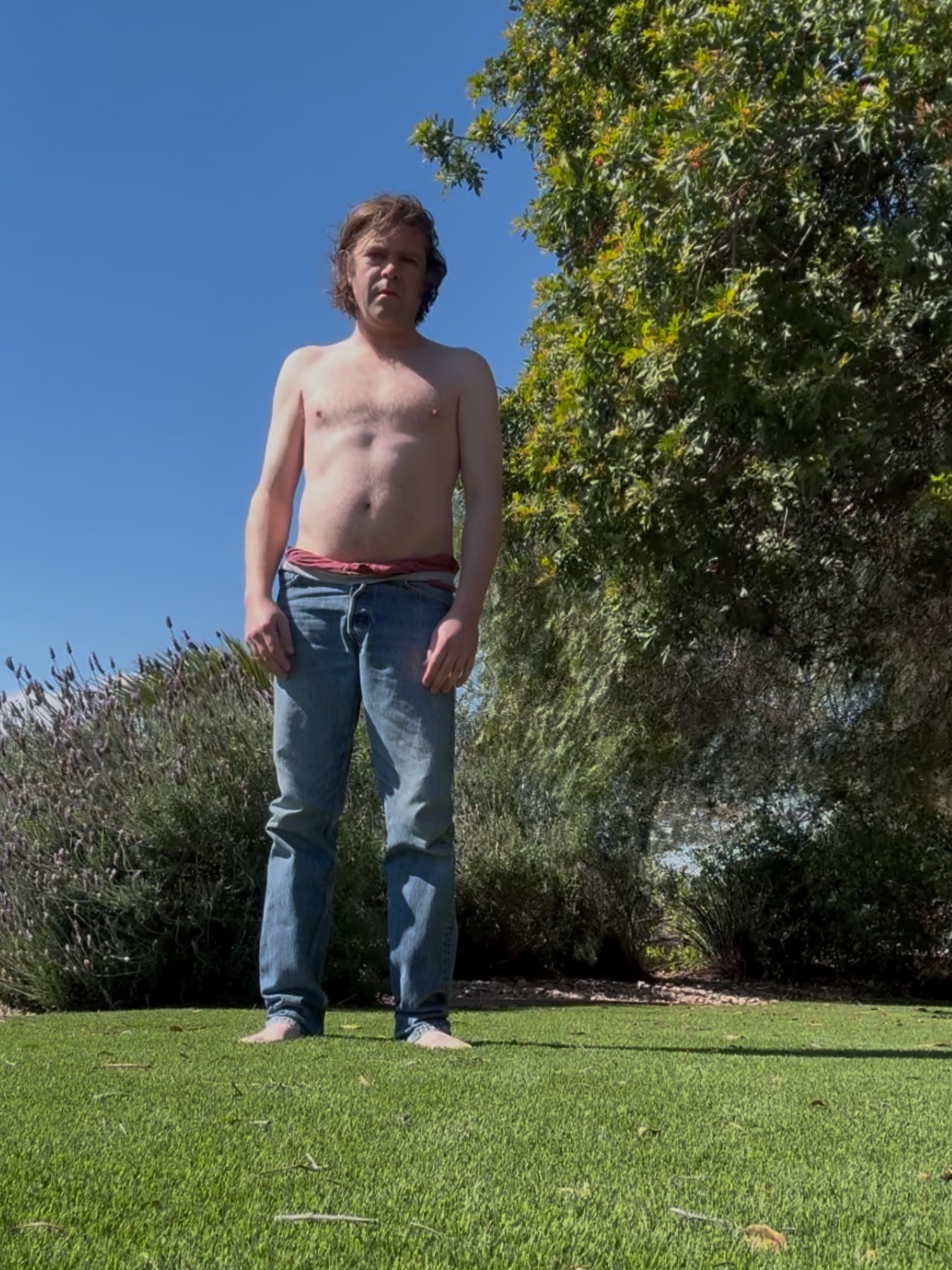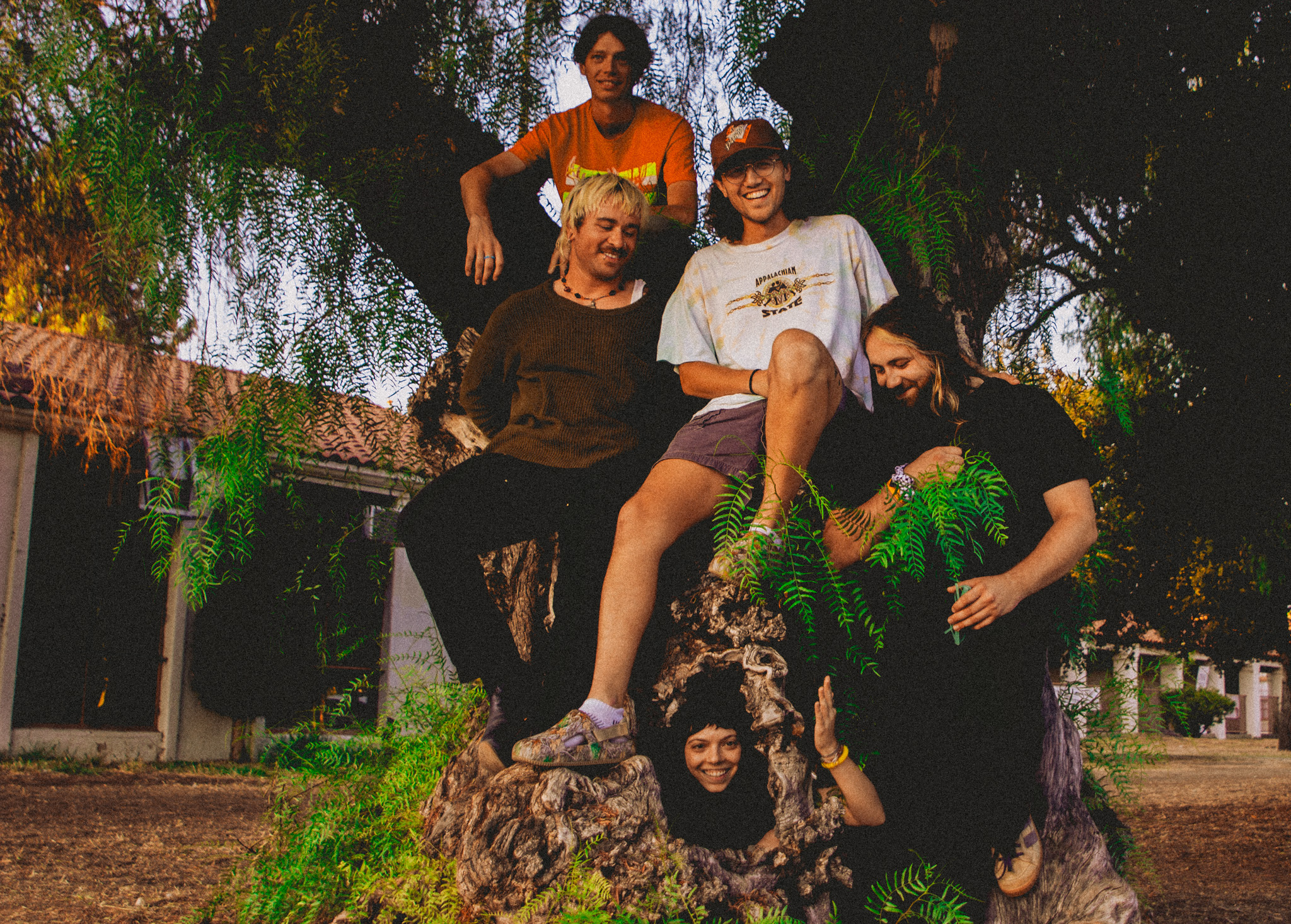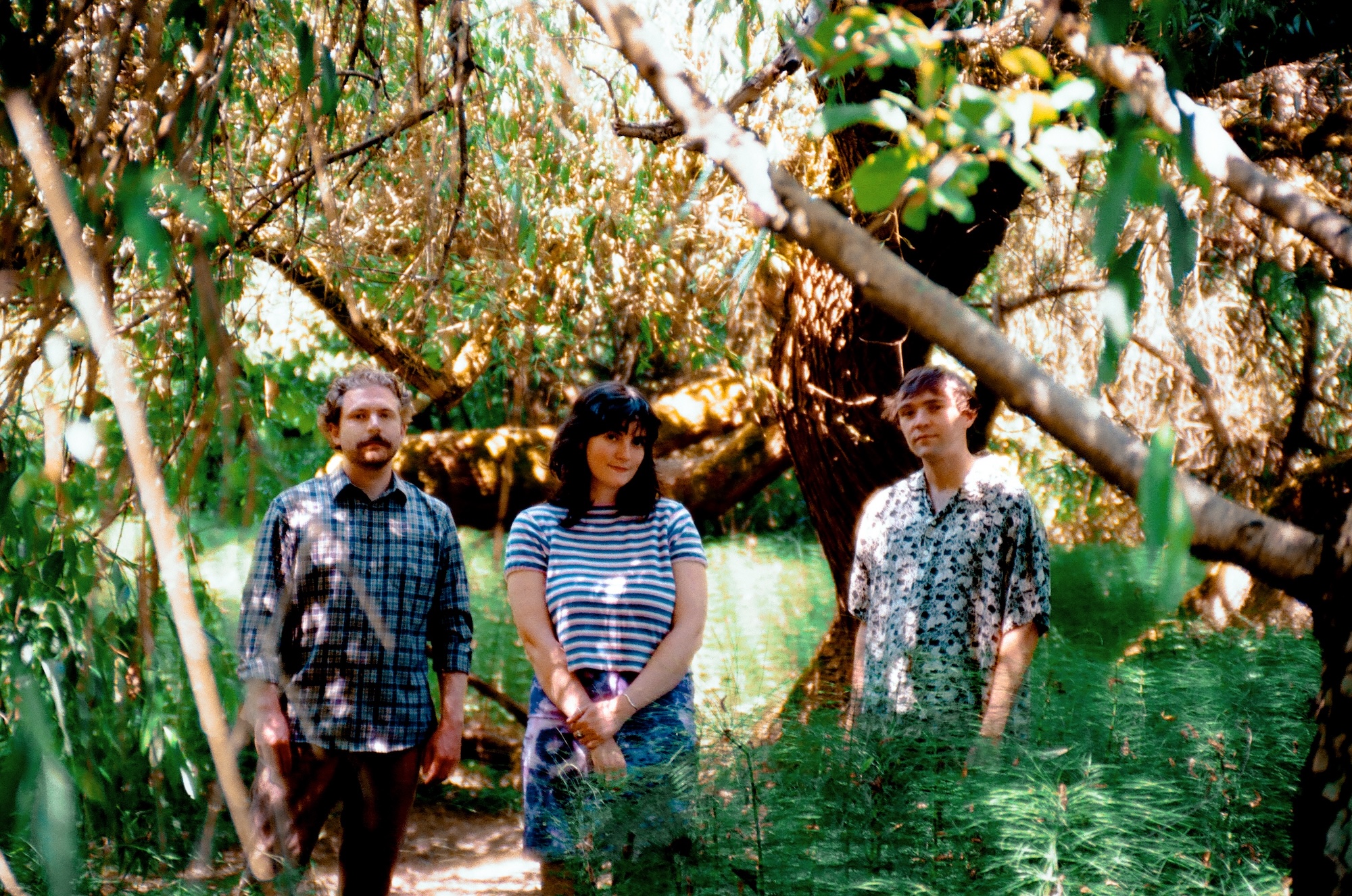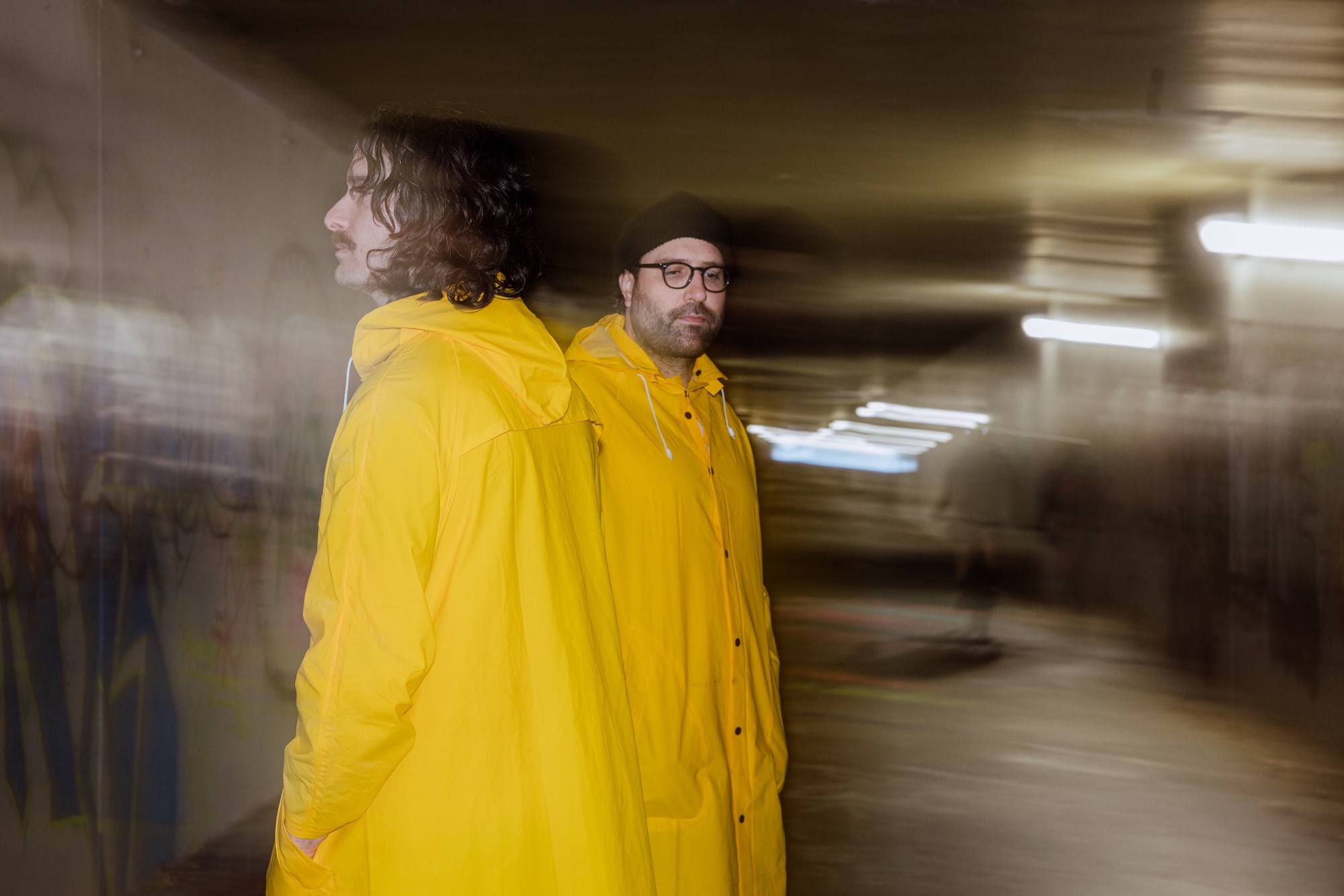
yeule is the Singapore-born, Los Angeles-based nonbinary musician, performance artist, and painter also known as Nat Ćmiel. First self-releasing songs at age 14, they have since emerged as a cult art icon, whose experimental pop songs of emotional excavation and self-reclamation have attracted a dedicated following of fellow outsiders who seek catharsis from physical and mental struggle. A chameleonic auteur guided by a multidisciplinary ethos, they craft entire worlds and personas through their music, weaving together everything from the classical canon, hypermodern internet cultures, academic theory, the esoteric, and their own carnal desires.
While their critically-acclaimed 2022 breakthrough album Glitch Princess was driven by the digital realities and intimacies they discovered to cope with the reclusion of their teenage years, yeule found themselves careening back into another self-made world—this time, more somatic and tactile—during the isolation of the pandemic.
In 2020, yeule was forced to return to Singapore while in their final year at Central Saint Martins College of Art and Design in London to finish their degree. In the midst of pandemic chaos and broken ties, grief was abundant when they lost a close friend from an overdose. They poured out their anguish into a total of eight journals, filled with handwritten dissections of these potent feelings. They began playing acoustic guitar obsessively for the first time since they were a kid and relistened to the early 2000s alt-rock music they grew up on, increasingly becoming immersed in their memories.
By setting these inner musings to cathartic punk riffs and ethereal electronics, yeule crafted Soft Scars, their debut album on Ninja Tune arriving September 22. On the blistering project, they closely examine the anatomy of their long held emotional wounds, making for their most penetrating and daring work yet. By liberating their repressed memories through images of blood, flames, porcelain, and angel wings, they honor the way that pain has shaped their past selves and built their instinct for self-protection.
Throughout, yeule also writes of relationships, either with themself or others, that were so transformational they feel almost metaphysical. “sulky baby” sees yeule having a conversation with their younger self, rekindling a childlike connection that they had long forgotten, while “ghosts” is written from the perspective of someone who is untethered to the physical realm, talking to the only person who can see them. Meanwhile, “aphex twin flame” is about meeting someone so familiar, you can’t help but suspect you were the same person in a past life.
“I took the metaphor of the scar to represent each song, and each scar remains soft,” yeule says. “Whether you’re healing from emotional trauma or a physical wound, time never heals a scar completely. There’s no more pain, but you can still see the mark afterward. I have a deep feeling that the things my ancestors went through got passed down; there’s some trauma that just sticks. There was always decay and distortion in my life, there’s always been something wrong or ugly. So the scar reminds me that I’m being protected, and I should protect myself.”
Though its subject matter is heavy and arcane, there is a sense of joyful catharsis that emanates throughout the project, which was written and produced by yeule and their best friend Kin Leonn, with additional magic from Mura Masa and Chris Greatti’s production (Yves Tumor, Willow Smith). Driving it along is yeule’s shape shifting vocals, sounding more assured than ever in all of its jagged edges and haunting whispers, relaying the imperfect process of healing. A gentle moment of solace arrives with “fish in the pool,” a melancholic piano interlude that serves as a dedication to the instrument, which they started playing at age 6 and call their “first love.”
Soft Scars also marks a new era of yeule embracing their musical project as who they truly are as a person. “I was forcing myself to separate myself from my artist persona and trying to tone myself down, because I felt like people wouldn’t like me if I was really that,” yeule explains. By becoming the otherworldly figure that once was of their imagination, they have now bridged the fractured identities that could only exist through different contexts and forms.
The bold actualization of yeule’s vision serves as a model for anyone else who wishes to break the mold and step into the next version of themself. “I feel like we’re always so silenced and turned down by everything in this world,” they add. “Don’t wear this, don’t do that, people always say. But once you stop seeing those as barriers, it’s like your whole life blossoms.”
yeule
SASAMI
